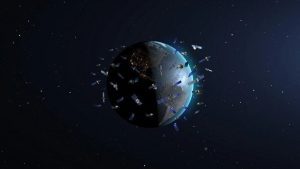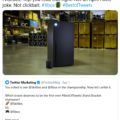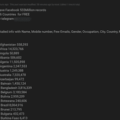
SpaceX has signed an agreement with the US National Science Foundation. It states that Elon Musk’s company must continue its efforts to limit the nuisance of Starlink satellites for astronomical observations.
Under the agreement , SpaceX promises to continue efforts to keep the Starlink satellites from getting brighter than a magnitude of 7, making them invisible to the naked eye. It does not make them ‘invisible’ for astronomical observations, but it does limit their effect. Certain adjustments are made to the solar panels and a new black paint is applied.
This should further counteract the problem of sunlight reflection. As a result, the satellites can be visible as bright dots in the sky, especially because they are placed in a relatively low orbit around the Earth. In the past this has already led to disruptions of astronomical observations and concerns have been expressed about this on several occasions .
The concerns are not only about observations in the visible part of the spectrum. Radio telescopes can also be affected by the Starlink satellites. As part of the agreement, SpaceX pledges not to transmit signals when the satellites fly over large radio telescopes. This seems to be limited to American radio telescopes.
This is an agreement that focuses on the second generation of Starlink satellites. At the beginning of December last year, the regulator Federal Communications Commission gave permission to launch 7500 of the planned 30,000 artificial satellites . The current coordination agreement with the National Science Foundation was a condition of the license from the FCC. Apart from this licensing requirement, there is no obligation for SpaceX to commit to reducing the impact of its Starlink satellites on astronomy; there are no laws or policies governing this area.
Incidentally, there is an organization that considers consultation and coordination insufficient. The International Dark-Sky Association has filed a case against the FCC approval. This organization believes that this permission leads to negative effects for astronomy by amateurs and professionals and argues that it leads to a reduction in the ability to enjoy dark skies. According to the International Dark-Sky Association, the FCC violated the National Environmental Policy Act by granting the license to SpaceX. The FCC has previously ruled that an environmental assessment under this U.S. law is not required because SpaceX’s mitigations and agreement with the National Science Foundation are sufficient.










